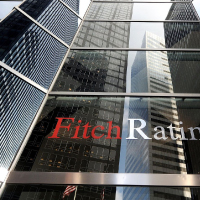
Recommended contact person
The New Era of MENA – EU Transactions | Why Cyprus is the Gateway Jurisdiction

🎧 Also available in our Podcast series Deep Dive.
Listen now
Cyprus as the Strategic Jurisdiction Linking MENA and the EU
Cross-border legal and commercial activity between the Middle East and North Africa (MENA) and the European Union has entered a new era. Geopolitical realignments, ambitious national development strategies across the Gulf, regulatory tightening in Europe, and unprecedented private capital growth have all contributed to a dramatic rise in outbound and inbound investment. More regional companies are expanding into Europe, and more European groups are seeking stable access to the markets of the Gulf, Levant, and broader MENA region.
Within this evolving landscape, Cyprus has quietly but decisively positioned itself as the gateway jurisdiction through which these transactions are structured, executed and governed. The shift did not happen by chance. It is rooted in legal predictability, cultural proximity to the Middle East, regulatory alignment with the EU, and a mature corporate and financial services ecosystem capable of supporting high-value international trade and investment.
Drawing on more than two decades of advising on MENA – EU transactions, in this article we explain how Cyprus rose to this position and why it is now the preferred structuring hub for investors, corporates, financial institutions, and family offices operating across both regions.
A jurisdiction naturally positioned between two business cultures
Cyprus’s geographical location has always been relevant, but in the modern business environment its real advantage lies in its cultural, legal and professional compatibility with both sides of the MENA – EU corridor. It is the only EU jurisdiction that shares genuine cultural familiarity with the region while operating under a legal system strongly influenced by English common law. This duality allows investors from Lebanon, the GCC, Egypt, Jordan and Israel to deal with EU structures without feeling disconnected from the negotiation styles, communication dynamics and contractual expectations they are accustomed to.
At the same time, European companies and institutional investors view Cyprus as a familiar and trustworthy legal environment. Its courts, regulatory standards and corporate governance rules mirror those found in the UK and other advanced common law economies. This has made Cyprus particularly attractive for joint ventures, holding structures and commercial contracts that require both EU legal certainty and regional commercial flexibility.
Why this alignment matters today
The MENA region is experiencing one of the fastest transformations globally. Gulf states are directing enormous sovereign and private capital into European markets, targeting energy, infrastructure, technology, real estate, and logistics. Family businesses, historically the backbone of most MENA economies, are restructuring, modernising governance, and seeking international protection for their assets. Technology companies across the region are scaling and looking for EU-compliant data and IP structures. Courts and regulators are strengthening their scrutiny of cross-border financial flows, mergers, and beneficial ownership.
These shifts have created a significant demand for a stable, EU-based, common-law-influenced jurisdiction that understands both regions. Cyprus fits this need more naturally than any other EU state.
For outbound MENA investors, Cyprus offers predictability: EU corporate law, EU regulatory protection, and internationally recognised dispute-resolution mechanisms. For European businesses operating in the region, Cyprus offers proximity and local insight without the friction of establishing an on-the-ground presence in multiple Middle Eastern jurisdictions.
A mature corporate and legal ecosystem that supports complexity
Cyprus has spent the last 35 years building a sophisticated corporate, banking, advisory and legal ecosystem designed to support international business. Its Companies Law (Cap. 113), modelled on the UK Companies Act, provides a framework familiar to international lenders, private equity funds, institutional investors and multinational groups. The rules that govern shareholder rights, board powers, fiduciary duties, financial reporting and corporate governance are rooted in high-trust common-law concepts, which makes them highly suitable for complex cross-border structures.
Corporate transactions in Cyprus are typically efficient and commercially oriented. Incorporation is quick, mergers and reorganisations are procedurally straightforward, and the jurisdiction is creditor-friendly in terms of security registration and enforcement. These are practical advantages that matter immensely in multi-jurisdiction deals, where timelines are compressed and contractual certainty is critical.
On the fiscal side, Cyprus provides an internationally compliant but competitive tax environment. Its corporate tax remains attractive by EU standards; its double tax treaty network extends into key MENA jurisdictions; and its intellectual property regime is widely used by technology and innovation-driven companies. Importantly, Cyprus achieves this competitiveness without relying on aggressive or opaque tax practices, which makes it acceptable to banks, auditors, investors and regulators.
Practical considerations in cross-border legal work
From a legal practitioner’s perspective, the success of MENA – EU transactions depends on clarity, enforceability and sensitivity to regional nuances. Most disputes between MENA and EU parties arise not from bad intent, but from poorly drafted corporate agreements, ambiguous liability frameworks, misaligned governance structures, or dispute-resolution clauses that have not been tested.
Cyprus law provides the foundation for avoiding these pitfalls. It allows for clear contractual drafting using concepts that international courts are familiar with: indemnities, representations and warranties, limitation clauses, shareholder deadlock mechanisms, good-faith obligations, and arbitration clauses that stand up at enforcement stage. This framework is particularly valuable where parties come from jurisdictions without predictable or rapid court systems.
Regional cultural understanding is another essential factor. MENA transactions often involve family-owned businesses, extensive negotiability, and deeply personal trust-based relationships. A lawyer bridging these markets must understand these dynamics when designing corporate structures, drafting shareholder agreements, managing negotiations, or preparing dispute-prevention mechanisms. Legal expertise alone is not enough; practical understanding of how business is conducted in the region is equally important.
Dispute resolution plays a central role. Because cross-border MENA – EU contracts frequently rely on arbitration (especially under ICC, LCIA or emerging regional institutions), Cyprus’s approach to arbitration and award enforcement is particularly relevant. Cyprus is a signatory to the New York Convention, its courts have a long history of supporting arbitral processes, and its judiciary is comfortable issuing interim relief in aid of foreign proceedings. This predictability provides confidence to both parties in a cross-border contract.
Where Cyprus is being used today: key sectors
The strongest growth can be observed in sectors where MENA capital is expanding into Europe, and where European expertise or assets are moving into the Middle East.
Real estate and hospitality remain major drivers, with Gulf investors increasingly using Cyprus vehicles for hotel, resort and commercial property investments across Europe. Joint ventures in renewable energy, power projects, and large infrastructure developments also rely on Cyprus holding structures, particularly when European contractors and MENA developers need a neutral legal environment for governance.
Shipping and maritime activities continue to be a defining strength of Cyprus. With one of the world’s most established shipping registries and a strong community of maritime service providers, Cyprus attracts both yacht and commercial fleet owners from the region. It is now common for Middle Eastern investors entering the maritime space to structure their shipowning, chartering or financing entities through Cyprus, benefiting from its regulatory stability and maritime expertise.
Technology, AI and digital-economy businesses are also increasingly using Cyprus. MENA startups and scale-ups often face the challenge of entering the European market while complying with EU data protection rules, intellectual property legislation, and investor expectations. Cyprus offers a legally strong, GDPR-compliant base from which these companies can operate, raise capital, store intellectual property and contract with European clients.
Benefits for regional clients using Cyprus structures
- For investors and corporates in the MENA region, the value of Cyprus extends beyond mere taxation or proximity. The most significant advantage is legal certainty: predictable governance rules, enforceable shareholder arrangements, internationally recognised arbitration choices, and access to reliable courts.
- Asset protection is also a key factor. Properly structured Cyprus entities offer legal insulation of assets, clear separation of ownership and management, and the ability to implement robust succession and corporate governance frameworks that are more difficult to achieve in certain MENA jurisdictions.
- Banking is another practical benefit. Cyprus companies are generally accepted by both European and regional banks, allowing smoother transaction flows, cross-border financing and international treasury operations. For technology and digital businesses, compliance with EU standards adds credibility in their dealings with regulators, investors and counterparties.
Looking ahead: why Cyprus’s role will intensify
The structural trends that have shaped the new MENA – EU corridor are only accelerating. The Gulf continues to diversify its economies, and outbound investment from sovereign wealth funds and large family groups is increasing. European regulatory compliance is becoming more complex, making EU-based structures more essential for any business wanting long-term access to the market. Global instability has reinforced the need for diversified, multi-jurisdictional asset protection and corporate resilience.
Against this backdrop, Cyprus’s blend of EU membership, common law influence, cultural connection to the region and maturing professional services sector positions it as the natural gateway jurisdiction for the next phase of MENA–EU economic integration.
MENA/EU transactions are no longer occasional or opportunistic. They represent a major economic corridor shaped by private capital, infrastructure partnerships, emerging technologies, and increasingly sophisticated cross-border corporate structures. In this environment, Cyprus stands out as the jurisdiction that understands both worlds – offering the regulatory stability and legal predictability of the EU, while maintaining the cultural familiarity and commercial practicality demanded by MENA investors.
For businesses and investors operating across these regions, Cyprus is not simply a convenient option; it has become the strategic, logical and often essential pathway for structuring resilient and long-term international operations.
AGPLAW, with its combined presence in Cyprus, London, Dubai and Beirut, is uniquely positioned at the heart of the MENA–EU transactional corridor. Our Partner, Serena Ghanimeh, based in Beirut, Lebanon, provides regional insight and direct access to one of the most commercially active markets in the Eastern Mediterranean, strengthening our ability to manage complex cross-border matters with cultural and legal precision. Through this integrated platform, and with a deep understanding of both MENA and EU business realities, AGPLAW remains committed to guiding clients through this dynamic era of regional and international expansion.
The information provided by AGPLAW | A.G. Paphitis & Co. LLC is for general informational purposes only and should not be construed as professional or formal legal advice. While every effort has been made to ensure the accuracy and reliability of the information contained herein, no representation or warranty is given. In no event will the author or any related parties be liable for any loss arising from reliance on this article.















